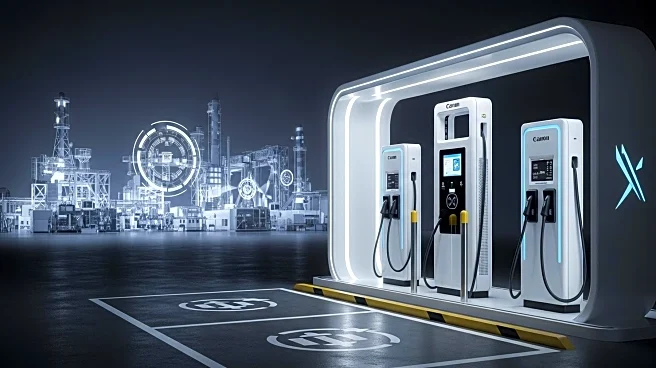What's Happening?
Hyundai CEO José Muñoz has clarified the company's position regarding a recent Immigration and Customs Enforcement (ICE) raid at a battery factory in Georgia, which resulted in the arrest of hundreds of South Korean workers. Muñoz emphasized that the facility targeted by the raid is operated by LG Energy Solutions, not Hyundai. The workers detained were employed by suppliers for LG, and not directly by Hyundai. The raid has raised concerns about foreign investment in the U.S., particularly in industries related to electric vehicles. Muñoz expressed disbelief at the situation and highlighted the need for a new visa category for highly skilled foreign workers to prevent similar incidents in the future.
Why It's Important?
The ICE raid at the Georgia facility has significant implications for foreign investment in the U.S., particularly in the automotive sector. It highlights the challenges faced by foreign companies in navigating U.S. immigration policies, which could deter future investments. The incident underscores the need for clear and supportive policies to facilitate the transfer of expertise necessary for the development of specialized projects like electric vehicle manufacturing. The response from Hyundai's CEO suggests a potential shift in how foreign companies approach U.S. operations, with increased caution and demand for policy changes to protect their workforce.
What's Next?
In response to the raid, Hyundai and other foreign companies may advocate for changes in U.S. immigration policy to ensure the protection of their workers. The creation of a new visa category for skilled workers could be a focal point in discussions between the U.S. and South Korean governments. Additionally, Hyundai may reassess its operational strategies in the U.S. to mitigate risks associated with immigration enforcement actions. The incident could also prompt broader industry discussions on the impact of immigration policies on foreign investment and workforce management.










